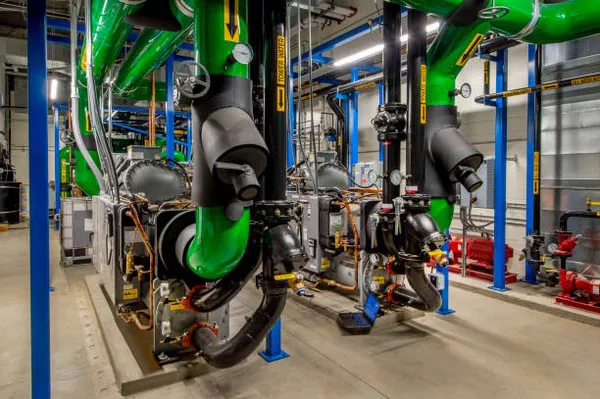Central air conditioning systems have become an integral part of our lives, providing comfort and relief during scorching summer months. However, like all mechanical components, central air conditioning compressors can wear out over time, requiring replacement. The cost of a central AC compressor replacement can vary significantly, depending on several factors. In this article, we will delve into these factors and provide you with insights to help you understand how much a central AC compressor replacement might cost.
Importance of a Central AC Compressor
The central AC compressor is often referred to as the heart of the air conditioning system, as it plays a vital role in the cooling process. It is responsible for compressing the refrigerant gas, which is essential for heat exchange and cooling within the system. When a compressor fails, the entire cooling process is compromised, leading to discomfort and potential damage to other components.
Factors Affecting the Cost
Type of Compressor: Central AC systems can use different types of compressors, including reciprocating, scroll, and rotary compressors. The type of compressor your system uses will significantly impact the cost of replacement. Reciprocating compressors are generally more affordable, while scroll and rotary compressors tend to be more expensive due to their efficiency and durability.
Compressor Capacity: The size or capacity of the compressor required for your central AC system is another critical factor influencing the cost. Larger homes with higher cooling demands will require more powerful compressors, which can be more expensive.
Brand and Model: The brand and model of the compressor also play a substantial role in cost variation. Well-known brands with a reputation for quality may charge more for their compressors. However, it’s essential to balance cost with reliability, as a higher-quality compressor can often be a wise long-term investment.
Warranty: The warranty offered with the compressor replacement can impact the overall cost. A compressor with an extended warranty might cost more upfront but could save you money on potential future repairs or replacements.
Labor Costs: Labor costs associated with compressor replacement can vary depending on your location and the HVAC technician you hire. Experienced and certified technicians may charge higher rates for their services, but their expertise can ensure a successful and long-lasting replacement.
Additional Repairs: Sometimes, a failing compressor can cause damage to other components within the AC system. If additional repairs are needed, such as replacing the condenser coil or evaporator coil, it will add to the overall cost of the replacement.
Accessibility: The accessibility of the compressor within your central AC system can affect labor costs. If the compressor is challenging to access due to its location, it may require more time and effort to replace, driving up the labor cost.
Refrigerant Replacement: In some cases, a compressor replacement may also require a refrigerant recharge. The cost of refrigerant can vary, and the amount needed will depend on the size and type of your central AC system.
Permit and Regulatory Fees: Depending on your location, you may need permits or have to pay regulatory fees for HVAC system replacements. These costs should be factored into the overall budget for the compressor replacement.
Average Cost Range
As of my knowledge cutoff date in September 2021, the average cost of a central AC compressor replacement in the United States typically ranged from $1,500 to $2,500, including both the cost of the compressor itself and labor. However, it’s essential to note that this is a general estimate, and costs can vary widely based on the factors mentioned earlier.
Keep in mind that prices for HVAC components and services can fluctuate over time due to factors such as inflation, changes in demand, and advancements in technology. Therefore, it’s recommended to obtain quotes from multiple HVAC contractors to get a more accurate estimate for your specific situation.
Tips for Managing Costs
Regular Maintenance: To prolong the life of your central AC compressor and reduce the likelihood of costly replacements, schedule regular maintenance with a qualified HVAC technician. Routine maintenance can help identify and address issues before they become major problems.
Energy Efficiency: Consider upgrading to a more energy-efficient central AC system. While this may involve a higher upfront cost, it can lead to long-term energy savings and potentially reduce the risk of compressor failure.
Multiple Quotes: When faced with the need for a compressor replacement, obtain quotes from several reputable HVAC contractors. This will help you compare prices and choose a contractor that offers a fair price for the replacement.
Financing Options: If the cost of a compress or replacement is a financial burden, inquire about financing options with HVAC contractors or through specialized financing companies. This can help you spread out the cost over manageable monthly payments.
Conclusion
A central AC compressor replacement is a significant investment, but it’s crucial for maintaining indoor comfort during the hot summer months. The cost of replacement can vary widely based on factors such as compressor type, capacity, brand, labor costs, and additional repairs. To make an informed decision, it’s essential to consider these factors and obtain quotes from qualified HVAC contractors.
Remember that regular maintenance and energy-efficient upgrades can help prolong the life of your central AC compressor, reducing the likelihood of costly replacements in the future. By carefully assessing your needs and budget, you can ensure a comfortable and cool environment in your home while managing the costs associated with central AC compressor replacements.

